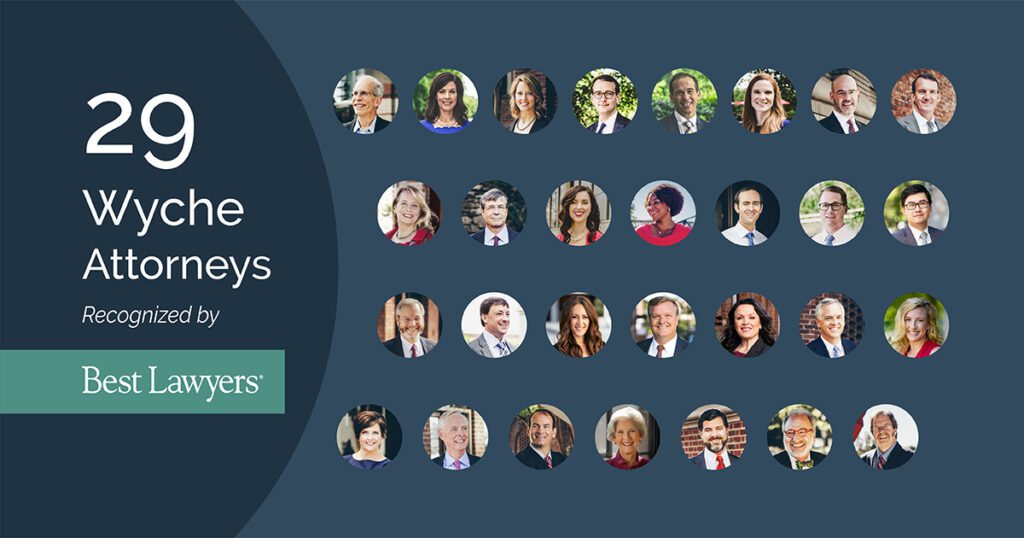Prepared by Ted Gentry
November 2012
Holiday Parties
We don’t want to dampen your holiday cheer, but there are a few ways employers can reduce the risk of legal problems that can arise during employer-sponsored holiday parties:
- Avoid customs that are not workplace appropriate (i.e., exchanging risqué gifts). Inappropriate conduct at a holiday party can later be used as evidence of harassment or discrimination.
- If alchohol is served, monitor and limit alcohol consumption. Under some circumstances, employers can be liable for damages caused if employees consume too much alcohol at employer-sponsored functions.
- Prevent wage and workers’ compensation claims by hosting the party off premises and outside of normal business hours, informing employees that attendance is completely voluntary, and making clear that there is no business purpose for the party.
There are plenty of ways of ending 2012 with a festive spirit without the gift of litigation in 2013. If you have any questions in this regard, do not hesitate to give us a call.
Hiring Highlights
As mentioned in our October edition of Wyche at Work, we continue to highlight legal issues related to hiring trends and recent job growth. In October, South Carolina’s unemployment rate dropped again, according to a report from the South Carolina Department of Employment and Workforce. We are hopeful that a hiring trend continues!
Don’t Hire a Lawsuit!
As hiring increases, employers should re-evaluate their hiring processes not only to make sure the best candidates are selected but also to identify any potential legal issues that may result in lawsuits down the road. One area of concern is whether an applicant is subject to any confidentiality or non-competition agreements with a previous employer that would interfere with his new job duties. Before hiring an applicant, we recommend at least these two steps:
- You should diligently inquire about any existing contractual obligations (keeping in mind that an applicant may have simply forgotten about signing an older agreement!). If such an agreement exists, you should obtain a copy and review the obligations. In some cases, there may clearly be no risk in hiring the applicant, while in other cases the risk may be obvious. Others may fall in between, where some activities may be allowed and others are not. Regardless, it is always a good idea to consult with legal counsel before hiring an individual who is subject to restrictive covenants.
- When you hire a new employee, you should execute employment agreements or other documents that seek a representation that the employee is not subject to an agreement that would prohibit the current employment or materially limit employee’s ability to perform the job. Similarly, you should make clear that failure to disclose such limitations could result in termination.
We also recommend that employers require all new employees, in writing, to abide by any non-disclosure agreements, confidentiality provisions, and restrictive covenants entered into with previous employers. Requiring candidates and employees to affirm that they will not disclose trade secrets or confidential information owned by their former employers may not only show that you care about confidential and proprietary information in general (thus helping you when you prosecute a claim against an offending employee), but they will also assist in the defense of a claim of misappropriation against your company. If this sounds like a good idea, we can help draft “trade secret disclosure forms” that set forth these expectations for your new employees.
Supreme Court Roundup
The United States Supreme Court has been relatively quiet in the last year as it relates to employment-related decisions. However, there are two recent developments that may be of interest to our readers.
Court Favors Arbitration Clauses
In a recent ruling, the Supreme Court again supported the use of arbitration clauses in employment-related agreements. In the context of an employment-related dispute, the Court reaffirmed the notion that while lower courts can review the validity of an arbitration provision, the validity of the contract itself and the substantive law regarding the contract are to be determined by the arbitrator. While arbitration clauses need to be carefully drafted, establishing a dispute resolution procedure that contains a mandatory arbitration process may be appealing to many employers. While there have been some efforts (judicially and legislatively) to limit mandatory arbitration, the United States Supreme Court continues to enforce these provisions and they may currently be considered in the employment context.
Court to Address Supervisor Liability in Harassment Cases
On November 26, 2012, the Supreme Court heard argument on an issue that has previously split federal appellate courts – who exactly is a “supervisor”? Is a person who has the formal authority to hire and fire employees a supervisor (the more restrictive definition), or can anyone who oversees or directs another employee’s work (a more expansive definition) be included in the definition of a supervisor? In today’s workforce, it is not uncommon for a number of employees to “direct”, “affect” or “have authority” over the terms and conditions of employment. In Vance v. Ball State University, the plaintiff complained that a co-worker who had the authority to direct her work threatened her and used racial epithets and she brought a claim of harassment under Title VII of the Civil Rights Act. The Supreme Court considered whether the “supervisor” liability rule in harassment cases should include harassment by those whom the employer vests with authority to direct and oversee their victim’s daily work or just those with authority to hire and fire. We will inform you of the Court’s decision when it is handed down.
Enforcement of those “No-solicitation and no-distribution” rules
It is common for employers to adopt a no-solicitation/no-distribution rule that limits solicitation of co-employees or distribution of printed materials to “non-work areas and non-work time.” However, as one South Carolina employer found out, failing to apply this rule uniformly can result in a charge with the National Labor Relations Board. In North Charleston, a manager instructed an employee not “to talk about the Union on Company time.” Evidence existed that employees often discussed (during working time) non-work-related matters, including family, children, and sports. The Administrative Law Judge hearing this matter determined that “promulgating a discriminatory rule prohibiting employees from talking about the Union during working time, while allowing discussions by employees on nonwork related matters during working time violates the [National Labor Relations Act].” It is important to review your work rules and policies to be sure that they are written in a way that doesn’t run afoul of the NLRA. Equally as important: don’t overstate the policies you have and don’t apply these rules selectively (especially when union organizing is involved or when an organizing campaign is underway).
If you have any questions about these or other workplace law topics, please contact Ted Gentry.
This update is provided by Wyche for educational and informational purposes only and is not intended and should not be construed as legal advice.






